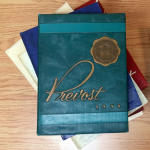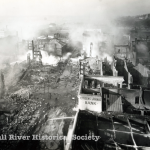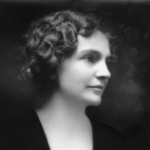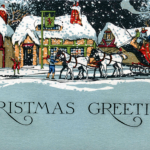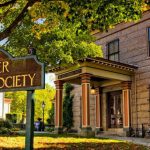This circa 1910 photograph from the FRHS collection is captioned: “Troy Mill at end of Pocasset Street.” The ivy-clad granite mill, and wild vines meandering over retaining walls belie the fact; lending a stately feeling, they render this view on the Quequechan River somewhat idyllic.
Fall River – The Spindle City – was a place synonymous with textile production during the 19th and early 20th centuries, with its mills of native granite or brick churning out miles of cotton cloth annually. The lucrative industry put Fall River on the map, long before the 1892 double murder that surpassed it in distinction – or should I say infamy.
The library and archive at the FRHS hold a vast collection of primary source material pertaining to the city’s textile industry – from ledgers and journals, to payroll receipts, invoices, and textile samples – all made available to visiting researchers and scholars.
The collection is vast, and is justly important.
The following letter attests to that:
October 1, 2018
Dear Michael Martins
I wanted to extend a formal thanks to the Fall River Historical Society for being the sole archive of so many of Fall River’s textile and mill records. As you know, I am an independent researcher working on a project for the BBC for an upcoming episode of WHO DO YOU THINK YOU ARE? They were in desperate need of primary sources to show that their star (who they did not reveal to me) had ancestors who worked in the mills in Fall River. The family had lived in Fall River from 1860 to 1880. All I had was a census address on Bedford Street and began my search in the nearby Troy Cotton & Woolen Manufactory, then located on Troy and Bedford Streets. I told them it would be like finding a needle in a haystack, but I did persevere—to great success!
In only two days of combing through the Troy Mill records, payroll accounts, labor books, and carding room pay records (which are expertly arranged and accessible with the finding aids you have produced), I actually found the husband and wife working there—including their earnings, days of employment, job titles, pay rate, etc. I could not have imagined it possible.
Needless to say, the BBC was overjoyed at the findings. The mill records produced a narrative that they plan to use on the show when it is produced next year. Hopefully, it will also bring them to Fall River to do some filming.
The Fall River Historical Society’s archive is the only place these records exist and contains information not found anywhere else in the world. What an important collection!
Thank you!
The FRHS has emerged as the principal archive relevant to Fall River’s textile industry, and a considerable number of man-hours – volunteer and staff – have been expended cataloguing the collection for accessibility and ease of use for patrons.
It is paying off … the BBC is “overjoyed.”
Positive feedback – clear evidence that the FRHS is making tremendous progress.
A very good thing, that.


